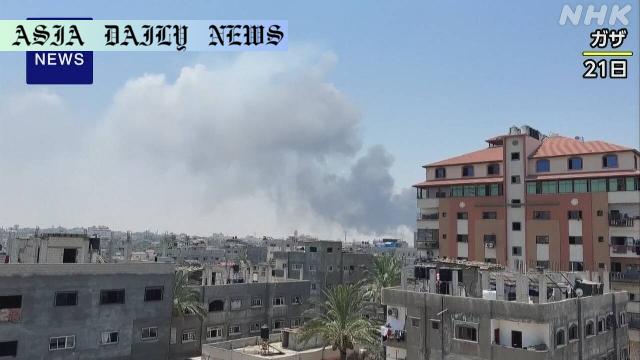Gaza Conflict – Israeli forces have initiated ground operations in central Gaza, targeting Hamas, with severe civilian and infrastructural impacts.
Gaza Conflict escalates as Israeli forces launch ground operations in central Gaza targeting Hamas.
The WHO’s facilities in Deir al-Balah have been severely damaged, hampering medical support in Gaza.
Civilians have been killed amidst military actions, raising humanitarian concerns.
The international community calls for an immediate ceasefire and peaceful resolution.

Overview of the Situation in Gaza
The conflict in Gaza has reached an alarming stage as Israeli forces have launched intensified ground operations in the central Gaza Strip, specifically targeting Deir al-Balah. Israeli media highlights that this operation is aimed at dismantling the Islamic group Hamas. Armed with tanks and other military equipment, Israeli troops have advanced into the area, and reports suggest that Hamas may be holding hostages in this region. Unfortunately, these operations have not spared civilians, with reports of casualties mounting and infrastructure being severely damaged.
Impact on Civilians and Humanitarian Concerns
Civilians continue to bear the brunt of the escalating violence. In the latest operations, at least three civilians were reported killed, and many more are likely injured. This raises inevitable questions about the safeguarding of non-combatants during such operations. The humanitarian toll is further amplified by the damaged World Health Organization (WHO) facilities in Deir al-Balah, including its staff residence and main warehouse. The resulting explosions and fire have rendered the facilities dysfunctional, crucially restricting medical aid in a region already grappling with dire healthcare needs.
International Response and Calls for Ceasefire
The international community has expressed deep concern over the developments in Gaza. On Monday, 28 countries, including Japan, and the European Union collectively called for an immediate cessation of hostilities. The United Nations has echoed these sentiments, condemning the attacks on civilians and vital health infrastructure in the strongest terms. Yet, Israel’s operations show little sign of abating, as reports suggest that ground maneuvers may continue for several weeks. This prolonged operation could exacerbate the already deteriorating humanitarian situation, including dwindling medical supplies, limited food access, and rising fatalities.
The Broader Implications of the Conflict
The ongoing Gaza conflict is not just a regional issue but a crisis with far-reaching geopolitical and humanitarian implications. Amidst the hostilities, the loss of civilian lives, destruction of essential infrastructure, and the paralysis of critical services like healthcare highlight the vulnerability of Gaza’s population. The situation underscores the urgency for a long-term, sustainable solution that addresses underlying tensions while respecting international law and human rights. Until a resolution is achieved, the world watches anxiously, concerned about the balance between security operations and humanitarian obligations in one of the most densely populated regions on the planet.



Commentary
Reflecting on the Human Cost of Conflict
The ongoing developments in Gaza paint a grim picture of the complex interplay between military operations and their devastating impact on civilians. While the stated aim of curbing Hamas’ influence may resonate with immediate security concerns, the stories that emerge of families torn apart, devastated homes, and overwhelmed hospitals are a stark reminder of the human cost. It raises ethical questions: is the price of security worth the immense suffering inflicted on innocent lives?
The Role of International Support and Advocacy
Efforts by the international community, such as the collective statement by 28 countries and calls from the United Nations, are commendable but beg the question of their efficacy. Ceasefire demands often fall on deaf ears as both sides navigate their political and military agendas. The call for accountability and adherence to international law must persist, not just as a reactionary measure but as an active attempt to prevent future crises. More robust and unified actions are necessary to bring about significant change.
Hope for a Peaceful Resolution
At its core, the Gaza conflict emphasizes the universal need for peace, stability, and mutual understanding. Overcoming such deep-rooted animosity requires dialogue, reconciliation, and a commitment to peace-building efforts from all stakeholders. While the path to resolution is fraught with challenges, global attention and intervention may yet pave the way for a more hopeful, harmonious future for Gaza and its people. Collective empathy and action are paramount to turning this vision into reality.